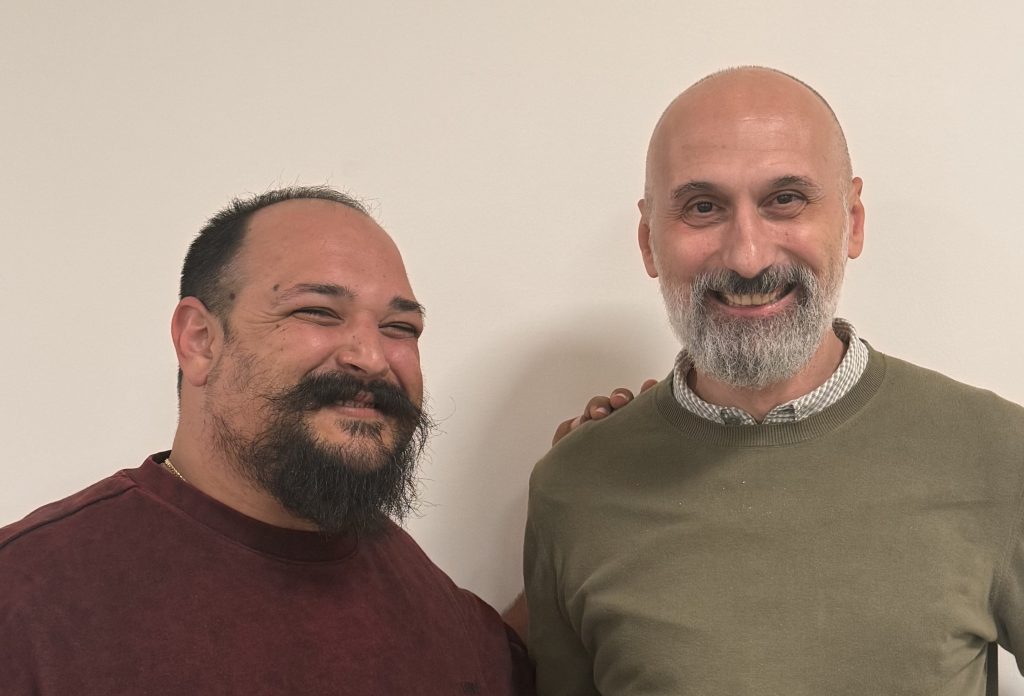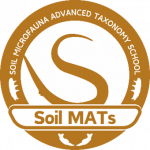On 1st September, SoilMATs became the 11th of 12 projects to be launched under TETTRIs cascade funding, aiming to support the co-creation of solutions that drive transformative change in taxonomy. Backed by €163,000 in funding, this initiative seeks to address a pressing issue in biological taxonomy: the shortage of skilled experts to study and classify the rich diversity of soil-dwelling organisms.
By focusing on three often-overlooked phyla—Nematoda, Rotifera, and Tardigrada—SoilMATs aims to train a new generation of specialists dedicated to preserving and understanding the vital role these organisms play in maintaining soil ecosystems.
Nematoda, Rotifera, and Tardigrada
Although invisible to the naked eye, the soil beneath our feet teems with microscopic life, crucial to the health and biodiversity of ecosystems. Among these tiny life forms are the meiofauna, a group of aquatic organisms that includes nematodes, rotifers, and tardigrades, among others. These creatures are essential for maintaining soil health, yet our understanding of them remains limited due to a lack of trained experts and fragmented research.

The Soil Meiofauna Advanced Taxonomy School (SoilMATs) aims to bridge this gap by training taxonomists dedicated to studying and conserving these often-overlooked organisms. Through a blend of online and hands-on training, the initiative will equip researchers with the skills and knowledge necessary to better understand and protect meiofauna and their contributions to soil ecosystems.
The SoilMATs project
SoilMATs has two key components: training “future local trainers,” who will become experts in taxonomy, and enabling these trainers to pass on their knowledge to other researchers, including students and postdocs, through online seminars, workshops, and field activities. By establishing a network of skilled taxonomists across Europe, SoilMATs aims to enhance research and conservation efforts for these essential organisms.
Roberto Guidetti, the project coordinator, explains the motivation behind SoilMATs: “Throughout my career, I’ve noticed a lack of generational change among taxonomic experts for certain groups of small organisms. I wanted to create an opportunity for scientific and personal growth for future taxonomists.”
Dr Edoardo Massa, a key assistant and “future local trainer,” says, “I have a deep passion for both tardigrade taxonomy and mentoring students, so I see this initiative as a perfect blend of my interests and an exceptional opportunity to make a lasting impact.”
Launched in September 2024, the project will continue throughout 2025, involving six “future local trainers” and 20 European researchers. Participants will undergo online training for the theoretical components and will visit partner laboratories for field activities, workshops, and hands-on learning experiences.
The team behind SoilMATs
The SoilMATs project brings together experts from three leading institutions in Italy, Germany, and Czechia, each specialising in a different phylum:
- The Italian team at the University of Modena and Reggio Emilia leads the project and is renowned for its work on tardigrade biodiversity and survival in extreme environments. They will oversee the project’s scientific and training activities, coordinating meetings and workshops, including a five-day face-to-face training programme.
- The German team at the Senckenberg Museum focuses on soil nematodes, their ecological roles, and their bioindicative value (the ability of certain organisms to serve as indicators of environmental health). They will be responsible for online training and a hands-on workshop in Germany.
- The Czech team from the Biologické Centrum specialises in the taxonomy and ecology of rotifers in extreme environments, such as polar regions. They will lead online training on Rotifera and host a workshop in Czechia.

SoilMATs’ first steps
Although still in its early stages, SoilMATs has been actively laying the groundwork for success. The team has held online meetings to plan upcoming activities, and preparations are underway for the first in-person training sessions, scheduled for February 2024. These early steps are crucial in building a solid foundation for the training programme that will unfold throughout 2025.
What’s next for SoilMATs?
Looking ahead, SoilMATs will focus on selecting and training the “future local trainers” and other scholars who will participate in the programme. The online training sessions will begin soon, laying the groundwork for more in-depth, hands-on workshops that will take place in Italy, Germany, and Czechia. These efforts aim to build a solid foundation for a new generation of taxonomists equipped to study and protect soil biodiversity.
Stay connected
Keep up to date with SoilMATs’ work by following:


